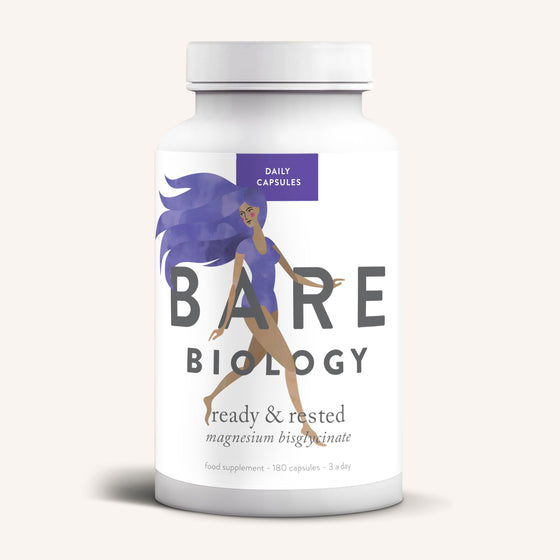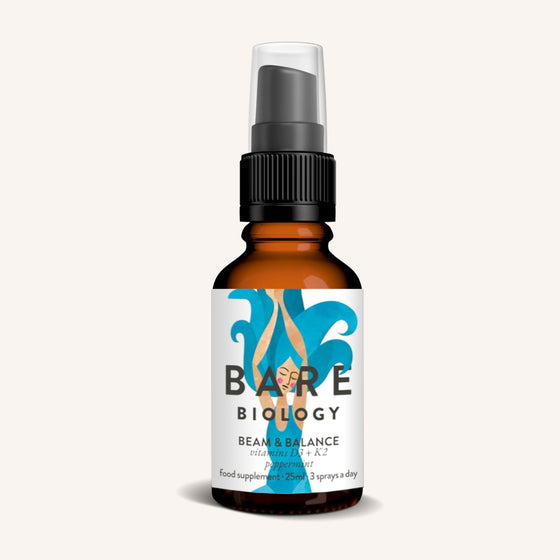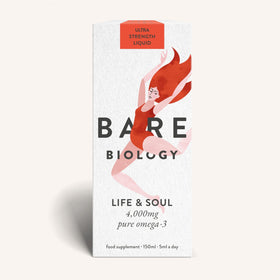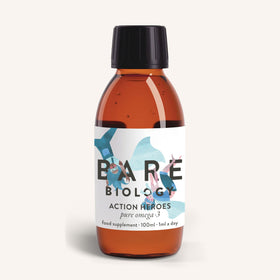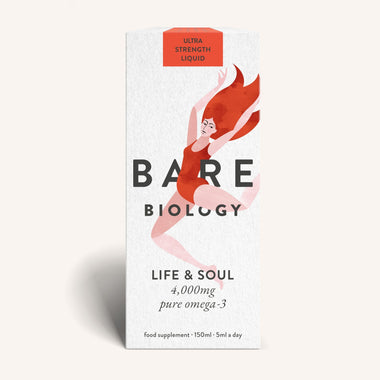Do fish oil supplements taste fishy or give you fish burps?
CONTENTS
Optimal Fish Oil Without the Fishy Aftermath
Is there something a bit, well, fishy about your fish oil? Perhaps your supplement leaves an unpleasant taste in your mouth, has a strong smell or is giving you so many fishy burps people are starting to avoid you. Before you decide that omega-3 is not right for you, we’re here to tell you that none of these things are an inevitable side effect of taking fish oil supplements.
Choosing a high-quality brand like Bare Biology will put a stop to omega-3 fish burps, bad tastes and pungent aromas. But what gives Bare Biology products a sweet-smelling edge over our fishier rivals? We’ll explain exactly why our liquids don’t taste fishy, why our capsules won’t repeat on you and give you expert tips on how to keep your fish oil as fresh as the day you bought it.
So don’t reach for the breath mints (or the Gaviscon) just yet. Read our guide to find the best-tasting fish oil money can buy and how you can do your bit to help keep it that way.
What does fish oil taste like?
A good quality omega-3 fish oil supplement will have the pleasant, fresh taste of the ocean, not the pungent aroma of two-week-old halibut that’s been left out in the sun. Put it this way. If you discovered that the fresh fish you were cooking for dinner had a very strong fishy taste or smell, you’d rightly assume it had gone off. And so it is with fish oil.
A fishy taste from fish oil is a sure sign that it’s started to oxidize, which is another way of saying it’s gone rancid. That’s bad news, because taking rancid oil isn’t great for our health. While you won’t get sick like you would from eating gone-off chicken, you won’t get any of the health benefits you were hoping to achieve.
When fish oils start to oxidise, the levels of EPA and DHA go down, but that’s not all. They also break down into smaller compounds called free radicals. While free radicals are not inherently bad, having too many for your body to handle can lead to what’s known as oxidative stress. This means that free radicals have overwhelmed your cells leading to inflammation and premature ageing.
Related products
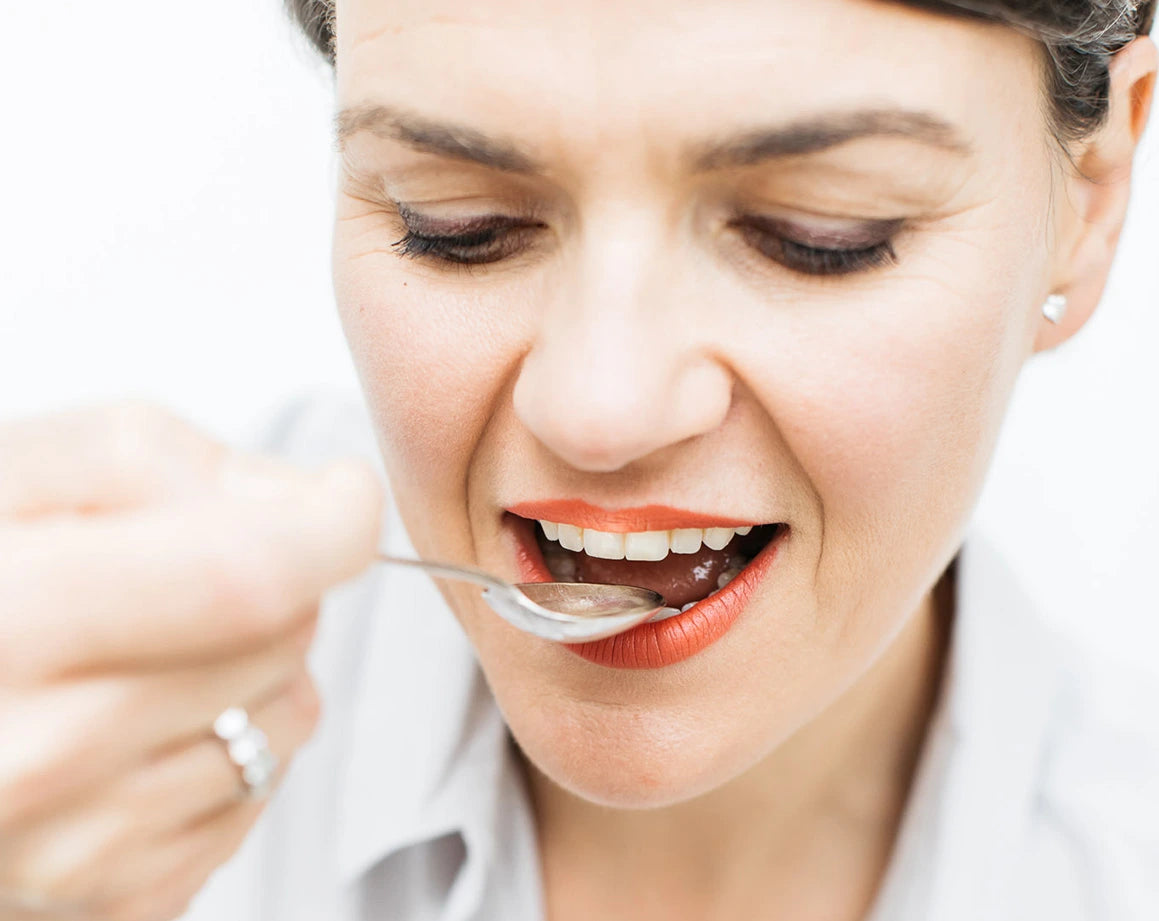
What causes burps from omega-3 fish oil?
Burps taste like fish oil? If you’re taking an omega-3 supplement that repeats on you, it’s a sure sign that the oil has gone rancid. With bottled liquids this is easy to detect as you’ll get a strong aroma of fish every time you take the lid off.
With capsules, the fish-burp-causing oxidation can be harder to detect. The only way to tell if a capsule is still fresh is to break one open and smell the oil inside. Nasty whiff? That’s the reason for your unsavoury gas.
If you’re sure your supplement is fresh and it’s still repeating on you or even causing heartburn, try to take them with a meal that also contains fat. Some people naturally have less stomach acid than others. Taking your supplements with a meal will help you produce more fat-digesting enzymes to ease the digestion process.
Why do fish oils go rancid?
Fish oils turn rancid when they come into contact with oxygen, which is why fresh-caught fish straight out of the sea don’t smell.
And it’s all down to the fat they contain. The more unsaturated a fat is, the more vulnerable it is to oxidation. Long-chain omega-3 fats are one of the most unsaturated fats you can find in nature, so without the proper care and handling they can spoil very easily.
Oxidation is a chemical reaction between the oil and oxygen. When the oil comes into contact with oxygen, its fat molecules form a bond with glycerol molecules which makes the oil break down. The whole process is sped up by exposure to light or heat.
Does Bare Biology fish oil smell or taste fishy, or give you omega-3 fish oil burps?
Absolutely not. One of the things that people are most surprised about Life & Soul Omega 3 fish oil is that it doesn’t taste fishy at all. This is because our oils are of such good quality. They’re super fresh, with much lower levels of oxidation than other brands, making them one of the least fishy tasting fish oils on the market.
Sicilian lemon is the only thing you’ll smell or taste in our liquid oils and we put that in so that they taste great even when eaten straight off the spoon. But you won’t find any lemon at all in our capsules. So why is that?
Because we don’t need to flavour them. Some manufacturers who use low-grade oil in their capsules often put in a strong lemon flavour to hide rancidity. So if you break your capsule open and it smells lemony, it should ring alarm bells!
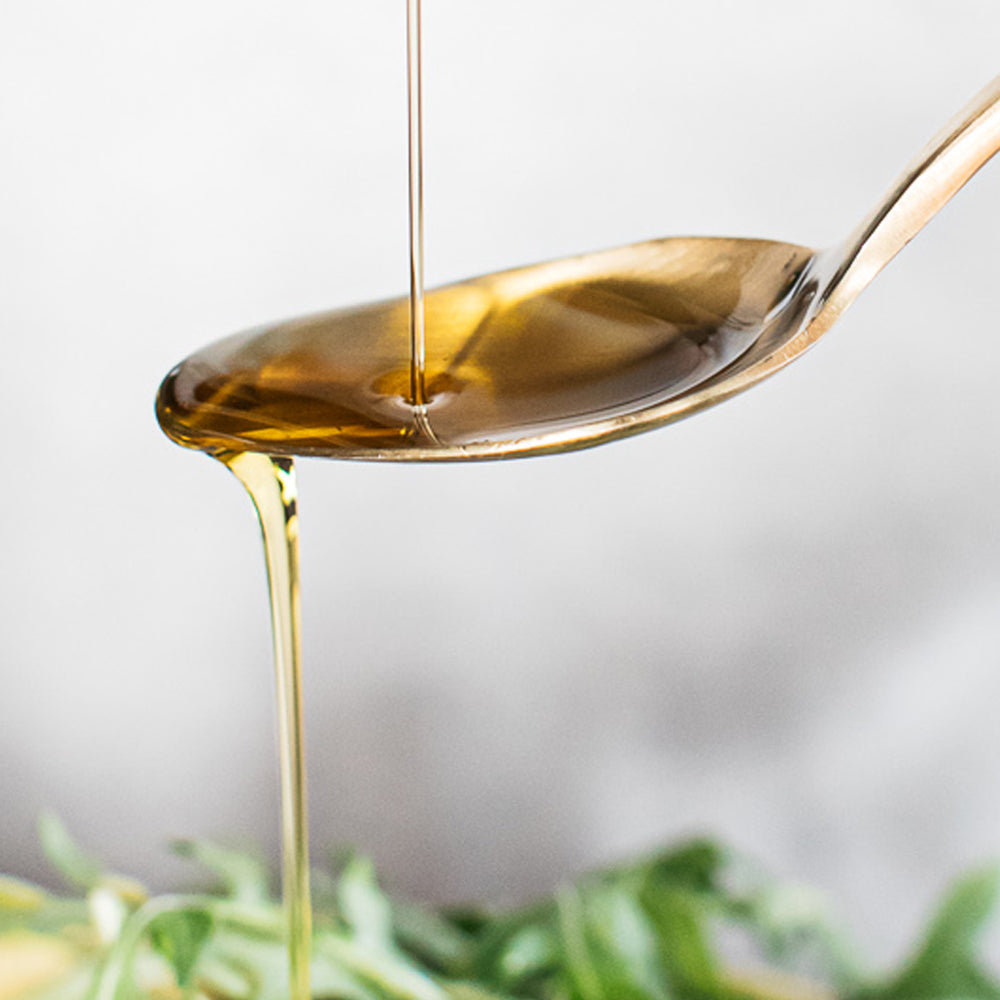
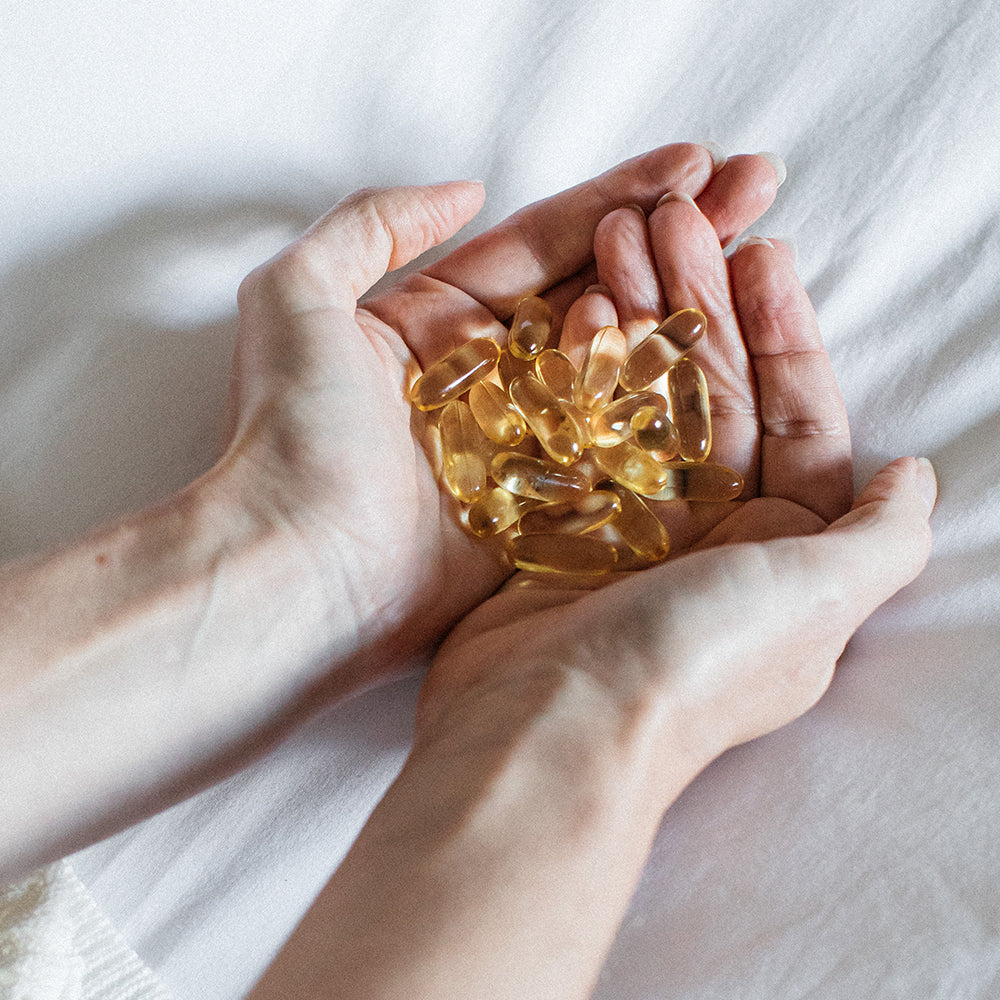
Why do some omega-3 fish oils taste fishy, while Bare Biology products do not?
When people experience negative side effects like fish burps or an unpleasant aftertaste, it’s usually because the manufacturers of their supplements don’t have as strict standards on oxidation as we do here at Bare Biology.
At Bare Biology we go to great lengths to ensure we keep our oxidation levels extremely low. Our delicate marine oil is extracted from the fish while it’s still on the fishing boats (always within 24 hours), then sent to Norway where it’s purified. It’s then tested for oxidation at this point by the Norwegian manufacturer before being shipped in sealed drums to be encapsulated or bottled.
When we take delivery of our pristine fish oil in its big drum its so fresh, it literally doesn’t smell of anything other than the faintest hint of the sea! But, just to be on the safe side, when the oil arrives at our encapsulators, the oxidation level is tested again.
As soon as the oil is handled to mix in the lemon oil and decant into bottles, it’s exposed to oxygen. We do this extremely carefully and use nitrogen (a common, harmless practice) to reduce the exposure as much as possible. Then we test the oil for oxidation again and send the finished bottle and capsules to be tested by the independent body, IFOS.
IFOS are independent because they don’t manufacture or market fish oil themselves and they don’t endorse any brands either. They simply test each oil by batch and publish the results on their website. And unlike other testing companies like ConsumerLab, the results are open to the public for free.
So just to recap! Bare Biology fish oil is tested after manufacture, and both before and after bottling/encapsulation, by two separate parties. Like we said, we don't take any chances on oxidation!
But not all manufacturers are quite as careful. If fish oil is not handled quickly enough or it’s stored in unsuitable conditions, like somewhere that’s too hot or humid, it can quickly turn rancid. The result? Omega-3 fish oil burps and a fishy smell or aftertaste.

How to find the best-tasting fish oil
Fish oil supplements that don’t taste fishy are hard to find (unless you buy from Bare Biology) but one way of finding out a brand’s level of oxidation before you invest your hard-earned cash is to look at its ‘certificate of analysis’.
All fish oil manufacturers are supposed to have one. It’s a detailed report of the test results they must carry out on every batch of their product. On the certificate, oxidation is measured in tests using the ‘peroxide value’, which is a measure of the reaction of oxygen with the fat. This figure should be less than 5meq/kg (milliequivalent per kilogram).
Can’t find that information or even track down the brand’s certificate of analysis in the first place? Then it’s a case of buyer beware. If a manufacturer is not as proud of their oxidation levels as we are, they may not share their certificate with you, or they’ll use terminology so vague you’re not quite sure what it means.
At Bare Biology, when the fish oil arrives in its drum, the peroxide value is incredibly low at just 0.4 meq/kg. As soon as the oil is handled (to mix in the lemon oil or decant into bottles) it’s exposed to oxygen. We do this extremely carefully, but a degree of oxidation is inevitable and the addition of flavour also affects the test results. We finish with a total oxidation result of around 4 meq/kg which is still very low and not at all fishy.
Fish oil and a metallic taste in the mouth
Some people report that their fish oil is leaving a rather different aftertaste. Having a metallic taste in your mouth after taking your supplement can also be caused by oil rancidity, so make sure your oil is fresh by sniffing it from the bottle or opening a capsule.
Once you’re sure your fish oil hasn’t gone rancid, there are a few other explanations to rule out
Are you taking any other medications alongside your fish oil? A metallic taste in the mouth is a common side effect of dozens of different drugs, from antibiotics to antihistamines. Multivitamins that contain metals like zinc, copper and chromium can also account for the strange taste and it’s one that will remain until the vitamin has been fully digested.
The last, more sinister, explanation is that the fish oil you’re taking is less than pure. Poor quality supplements may be contaminated with heavy metals such as mercury, lead, arsenic or cadmium. These enter the ecosystem as a result of industrial activity and accumulate in the fatty tissues of fish, meaning that any oil they produce will contain a concentration of these nasties.
Heavy metal contamination is a huge problem in fish oils and it’s one of the reasons we only use small fish like sardines, mackerel and anchovies in our products. This is because small fish are at the very bottom of the food chain and therefore contain fewer heavy metals and other pollutants such as PCBs.
The higher up the food chain you are the more toxic build up you get. This means that larger fish like pollock, salmon and tuna are likely to carry more heavy metals and chemicals.
To make sure our oils are free from heavy metals, they’re batch tested by IFOS who uphold the most stringent international standards for pollution. We pass with flying colours and have the results to prove it.
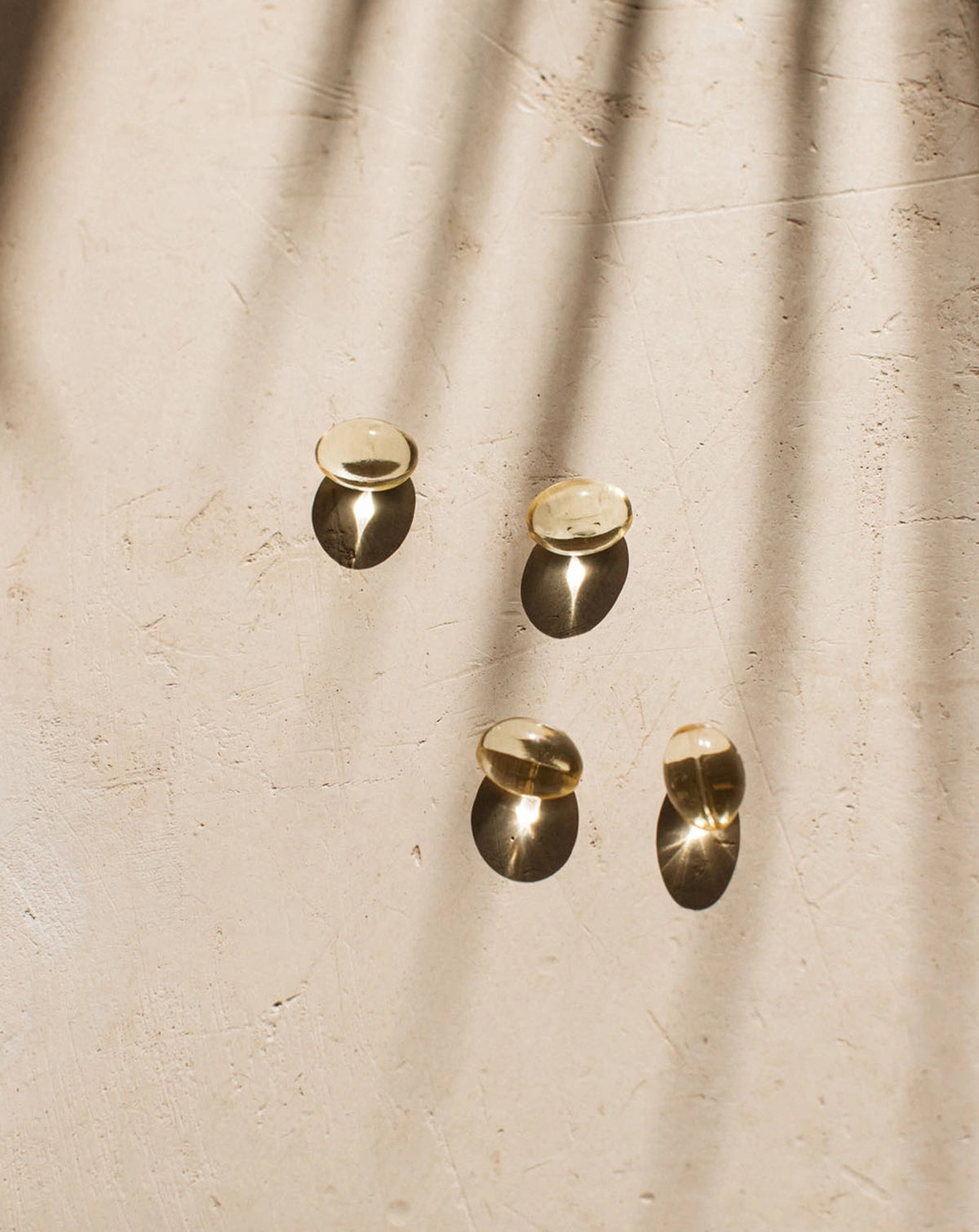
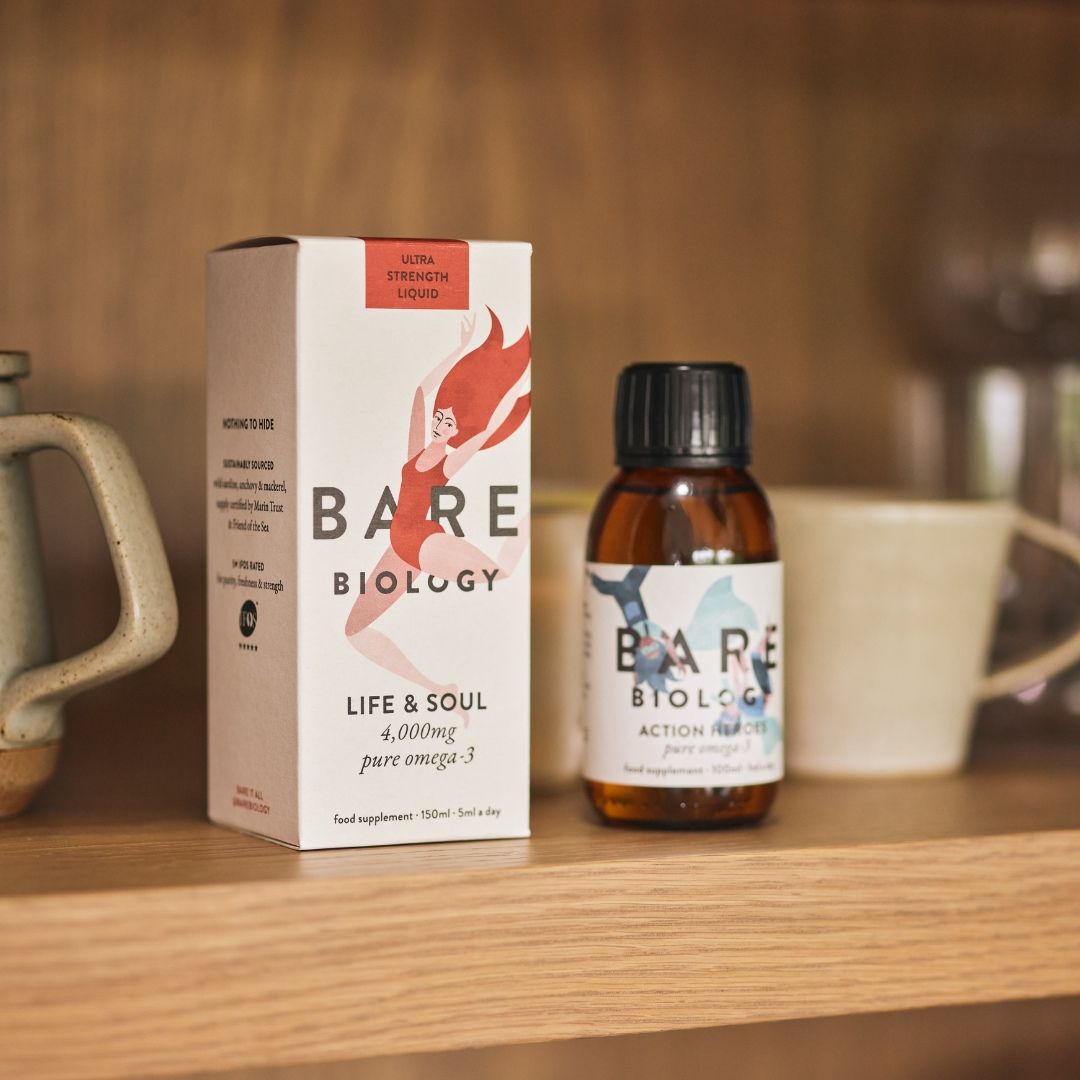
How to keep your fish oil fresh
We go to great lengths to ensure our fish oil is exposed to the least amount of oxygen we can, but what happens when you get your oil home? Follow our tips to keep your fish oil fresh.
Throw away fish oils that smell bad
The shelf life of our capsules (unopened) is two years from the date they were made, while our unopened liquids last two years from the date they were made. But once you open a bottle, you’ll inevitably let a little oxygen in. Our liquids can keep on tasting good for up to four months, depending on how well the lid has been sealed after opening. Our capsules are fine until the expiry date.
Handle omega-3 fish oil with care
Treat your omega-3 fish oil as if it were fresh food. We don’t load ours with any preservatives to make sure you get more omega-3 with every bottle. Liquid oils need to be refrigerated with the lid tightly screwed on once opened, while our capsules keep well in ambient or cool storage. In fact, unless you live in a super hot climate, it's better to keep your capsules out of the fridge as the cold can turn them hard, making them more difficult to swallow and more prone to cracking open.
Look for omega-3 fish oil supplements with added antioxidants
Choose supplements that have added, natural antioxidants that slow the oxidative process. We use vitamin E to naturally preserve our fish oil.
Think about getting a subscription
Getting a subscription means your oil is sent to you just when you need it, so you know you’re always getting the freshest of products. We can send out a bottle every month, so there are no concerns about the oil spoiling.

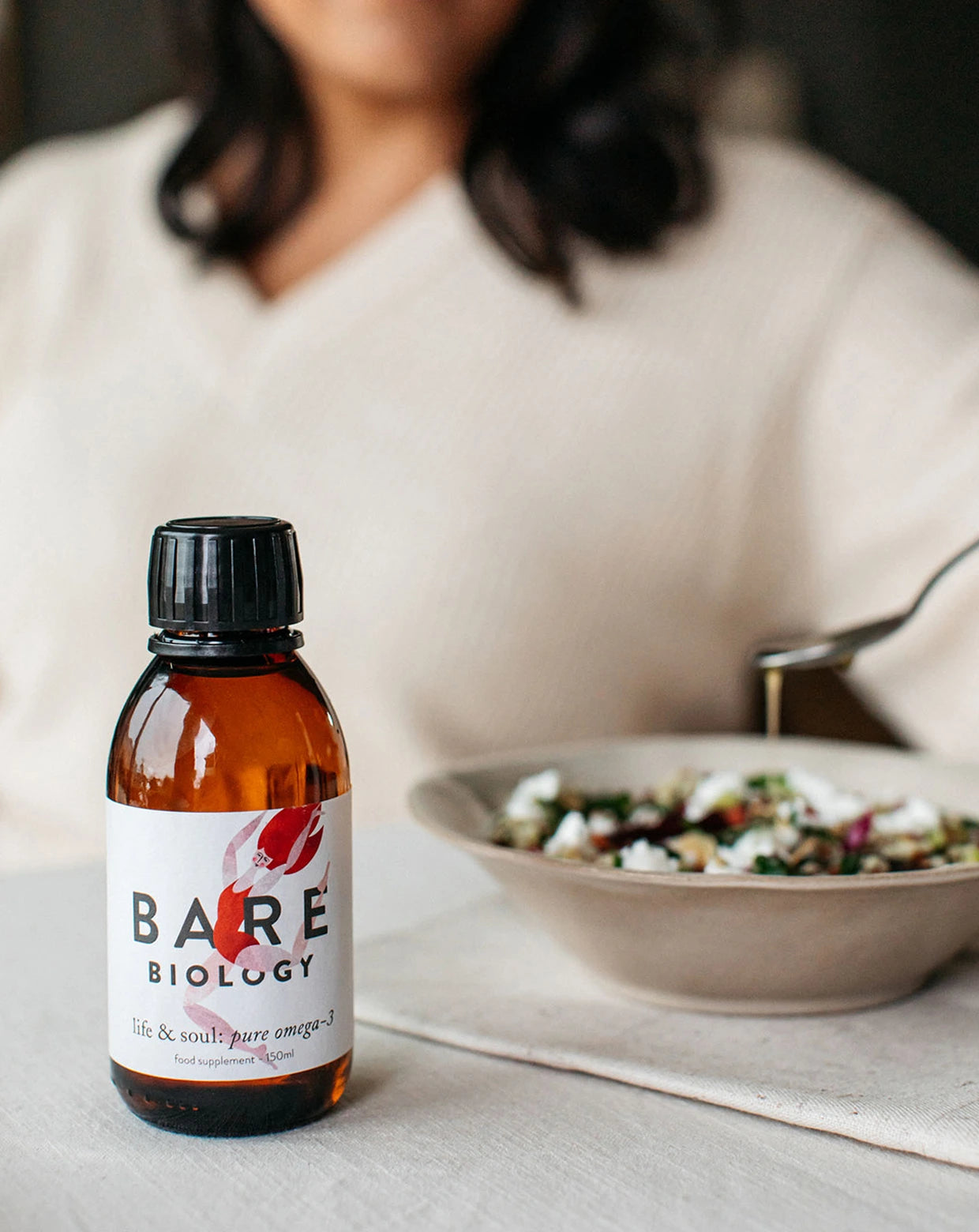
So is it possible to find a fish oil that doesn't taste like fish?
Don’t be put off taking omega-3 fish oil just because you’ve tried one in the past and found it repeated on you. It really doesn’t have to be this way if you take a high quality fish oil such as Bare Biology.
In fact one of the things we hear all the time from our customers is just how good our liquids taste. Don’t believe us? Here are just a few of our recent reviews!
“The flavour of the oil is amazing and it doesn't "repeat" like all the other omega-3 oils I've tried.”
“The oils taste nice, no nasty after tastes and they are easy for the children to take.”
“My children just take it with breakfast and they don’t need a chaser of something sweet or ‘nice’. It’s super easy. I like mine and it goes down no problem and no repeating. I’m happy.”
And as we all know, if kids will take it, it must taste good!



